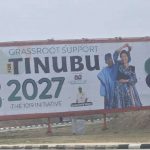Technology
NITDA Tasks Team on COVID-19 Effect on Nigeria’s Tech Space

By Adedapo Adesanya
A 10-man team has been inaugurated by the Nigerian Information Technology Development Agency (NITDA) with a task to come up with measures to cushion the impact of COVID-19 on Nigeria’s tech ecosystem.
According to Mr Kashifu Inuwa, Director General of NITDA, the committee will also be charged with providing insight for the government on how to provide an enabling environment for startups.
Not restricted to startups, the committee will extend its tentacles to small and medium scale businesses, and the technology ecosystem in general.
The committee comprises some carefully selected brightest minds in technology, entrepreneurship, the media, and creative industries. It was further charged with coming up with an inclusive and embracing roadmap for technology and creative media in Nigeria.
Members of the team include Mr Tomi Davies, President, African Business Angels Network; Mr Amal Hassan, Managing Director (MD), Outsource Global; Mr Bosun Tijani, MD, Co-Creation Hub; Mrs Juliet Anammah, Head, International Affairs, Jumia Group; Mr Kola Aina, Founder, Ventures Platform; and Mr Musa Baba, MD, Teasy Pay.
Others include Mr Iyinoluwa Aboyeji, Co-Founder, Andela; Mr Collins Onuegbu, MD, Signal Alliance; Mr Kalil Zannah, Special Assistant to the Minister of Communications and Digital Economy; and Mrs Amina Sambo-Magaji, the National Coordinator, Office for ICT Innovation and Entrepreneurship.
The members of the new advisory committee were inaugurated remotely due to COVID-19 outbreak.
Some responsibilities according to NITDA that the newly inaugurated committee is charged with include: “Devising suitable strategies for the provision of affordable internet access to individuals and businesses.
“Developing a framework to facilitate access to financing for technology and tech-enabled ventures.
“Devising modalities for encouraging the development and adoption of digital technology to support policies in line with the Work From Home directives of the Federal Government.
“Developing a support programme for innovation hubs to facilitate access to remote resources by start-ups during the work from home.
“Devising a stakeholder engagement instrument for tech and tech-enabled startups.”
This would not be the first time some members of the newly inaugurated committee would be working together as most were also part of a 50-man Presidential advisory group on technology and creativity inaugurated in June 2018 by the President Muhammadu Buhari led administration.
Technology
The Unsung Heroes of Fintech: How Creatives Are Driving Growth and Trust in the Financial Industry

By Samuel Olaniran
Many experts have highlighted the growing impact of creatives—especially those in product and brand design—across the financial industry, and how their work helps financial companies build trust, communicate value propositions, and drive growth.
These creatives shape the overall product and visual identity of financial brands, creating not just logos, colour schemes, and layouts, but also cohesive design systems that convey professionalism and reliability. This is crucial because trust is vital in finance. A strong, consistent brand and product design helps customers feel secure and confident in their financial decisions.
In digital platforms, product designers improve user experience. They ensure mobile apps, websites, and other tools are not only visually appealing but also functional and easy to navigate. A smooth, intuitive interface encourages users to engage more, making digital banking and investing more accessible to a wider audience. This can drive growth, as people are more likely to trust and stick with platforms that are easy to use.
Brand and product designers also simplify complex financial data through infographics and visualizations. Finance can be overwhelming, but clear visuals and product-led storytelling make it easier for customers to understand. Infographics turn complicated reports into digestible, engaging content, which can help customers make better financial decisions.
Marketing in finance also relies heavily on thoughtful brand design. Designers create visually appealing campaigns that catch the attention of potential customers. Whether it’s an ad on social media or an email newsletter, well-crafted design helps companies stand out and build a strong online presence.
In a competitive industry like fintech, where innovation is key, product and brand design can be the difference between success and failure.
As financial institutions grow globally, product designers help adapt their offerings and messaging to different cultures. By adjusting colours, symbols, and user interface elements to fit local preferences, they ensure financial products are accessible to a wider audience. This helps companies expand into new markets while keeping their brand relevant and consistent.
Looking ahead, the role of product and brand designers will only become more important. Their creative work is key to building trust, improving user experience, simplifying data, and leading marketing efforts. As finance continues to evolve, their role will remain essential in helping companies grow and connect with customers.
Technology
Tribunal Orders Meta, WhatsApp to Pay FCCPC’s $220m Fine in 60 Days

By Adedapo Adesanya
Nigeria’s Competition and Consumer Protection Tribunal on Friday ordered WhatsApp and Meta Platforms Incorporated to pay a $220 million penalty and $35,000 to the Federal Competition and Consumer Protection Commission (FCCPC) within 60 days over data discrimination practices in Nigeria.
The tribunal upheld the $220 million penalty imposed by the FCCPC on WhatsApp and Meta Platforms Incorporated, as well as $35,000 as reimbursement for the commission’s investigation against the social media giant.
The tribunal also dismissed the appeal by WhatsApp and Meta Platforms Incorporated regarding the $220 million penalty imposed by the FCCPC for alleged discriminatory practices in Nigeria.
The tribunal’s three-member panel, led by Mr Thomas Okosun, passed the verdict on Friday.
WhatsApp and Meta’s legal team, led by Mr Gbolahan Elias (SAN), and the FCCPC’s legal team, represented by Mr Babatunde Irukera (SAN), a former Executive Vice Chairman of the agency, made their final arguments on behalf of their respective clients on January 28, 2025.
Last year, the FCCPC asked Meta, the parent company of WhatsApp, Facebook, and Instagram, to pay $220 million for an alleged data privacy breach.
According to the agency, Meta was found culpable of denying Nigerians the right to self-determine, unauthorised transfer and sharing of Nigerians data, discrimination and disparate treatment, abuse of dominance, and tying and bundling.
The FCCPC noted that its decision was reached after a 38-month joint investigation by it and the Nigeria Data Protection Commission (NDPC).
The regulator also noted that its actions were based on legitimate consumer protection and data privacy concerns. It highlighted that its final order requires Meta to comply with Nigerian consumers and meet local standards.
“Similar measures are taken in other jurisdictions without forcing companies to leave the market. The case of Nigeria will not be different,” the FCCPC added.
Also weighing in on the issue then, Mr Irukera, noted on X that the approach being taken by the platform varied from that it was applying in other places it was operating.
“The same company just settled a Texas case for $1.4 billion and is currently facing regulatory action in at least a dozen nations, appealing large penalties in several countries. How many has it threatened to exit?” he queried.
Technology
Nigeria Achieves Peak One Terabit Per Second Internet Traffic

By Adedapo Adesanya
Nigeria has reached a historic peak in internet traffic, recording one terabit per second (Tbps) for the first time ever due to the rise in streaming interest.
According to Internet Exchange Point of Nigeria (IXPN), the 1 Tbps threshold was finally crossed in March 2025, adding that this significant milestone not only highlighted the nation’s accelerating digital transformation but also brings substantial economic benefits through the efficient exchange of local data.
The journey to this 1 Tbps milestone has been a progressive one for Nigeria. Starting from a modest 5 to 10 megabits per second in 2008, internet traffic saw substantial increases, reaching 126 gigabits by 2019, then 250 Gbps in 2020, and climbing to 900 Gbps by late 2024.
This expansion is attributed to the increasing number of local data centers, enhanced interconnection, and the presence of major international content providers such as Google, Facebook, Amazon, Microsoft, Netflix, and TikTok, all now connected to the Internet Exchange Point of Nigeria (IXPN).
According to Mr Muhammed Rudman, CEO of IXPN, this milestone represents a significant advancement in Nigeria’s internet infrastructure development and highlights the crucial role of local internet infrastructure in fostering economic growth, innovation, and connectivity for millions of Nigerians.
According to Rudman, “This milestone is more than just a number. It is a symbol of Nigeria’s digital maturity and our united strides towards becoming a tech-driven nation. By keeping local internet traffic within Nigeria, we reduce costs, improve speeds, and ensure our digital economy thrives with homegrown infrastructure.
Achieving 1 Tbps is a significant victory for Nigeria’s ICT ecosystem, a breakthrough for domestic internet traffic. It serves as a catalyst, enabling millions of Nigerians to enjoy faster, more affordable, and resilient internet connectivity.”
The 1 Terabit per second capacity signifies a transformative leap for Africa’s most populous nation. To illustrate its impact, a speed of 1 Tbps can concurrently support over 1 million Zoom meetings, empowering students, entrepreneurs, and professionals to connect and drive Nigeria’s digital revolution.
Furthermore, this speed allows over 200,000 individuals to simultaneously stream high-definition Nollywood or Netflix movies without any buffering or interruptions. It also enables the transfer of the entire contents of 50,000 smartphones—including photos, applications, and videos—in a mere second.
“For Nigeria, hitting this milestone means reducing reliance on international bandwidth, decreasing latency for local services, and strengthening its position as Africa’s digital heartbeat. This milestone is a testament to the power of collaboration, innovation, and the relentless pursuit of a faster, more connected Nigeria. This accomplishment goes beyond technical advancements; it has significant economic implications,” Mr Rudman explained.
“By encouraging local traffic exchange, IXPN reduces dependency on international bandwidth, leading to significant cost savings. By utilizing local data exchange, Nigerian businesses can save millions of dollars annually on international bandwidth fees.”
“It also helps to enhanced speed and connectivity, in that with reduced latency, users experience smoother streaming, gaming, and real-time services, enhancing their overall online experience. It strengthens Nigeria’s internet infrastructure protects against global disruptions, ensuring consistent access to vital services such as healthcare and education and optimizes digital services like fintech, edtech, e-commerce, and e-health, propelling innovation and growth in these sectors.”
The importance of this progress extends beyond mere speed. The Internet Society (ISOC) has revealed that Nigeria is now saving at least $40 million annually by keeping internet traffic within its borders, a cost avoidance achieved by routing data locally instead of relying on expensive international bandwidth.
Despite this achievement, Rudman also drew attention to Nigeria’s underdeveloped internet infrastructure, noting, “With a population comparable to Brazil, Nigeria has only 257 autonomous system numbers (ASNs), far fewer than Brazil’s 10,000 and South Africa’s 770. This is a major indicator of how few networks we have offering services.”
He highlighted the dominance of mobile internet access, stating that 99 percent of internet access in Nigeria is mobile-based, with many regions still limited to 2G or 3G networks.
“Some states with populations in the millions lack a single network with an ASN. That is a crisis. Even institutions with technical capacity remain unconnected. Out of 22 financial institutions, only the Central Bank of Nigeria is connected to IXPN,” he stated, also criticizing the insufficient interconnectivity among Nigerian universities.
Mr Rudman proposed the development of regional hubs, suggesting that a city like Kano could host Hausa language content and attract neighboring countries to connect through Nigeria, similar to South Africa’s role in Southern Africa.
To realize this vision, he advocated for investments in community networks, regulatory incentives, and support for local Internet Service Providers (ISPs). “The number of ISPs in Nigeria is shrinking. That’s a red flag. We need to reverse that trend to truly become a digital leader,” he advised.
He called for greater collaboration among regulators, stakeholders, and the media to identify and address the gaps within Nigeria’s digital ecosystem.
“We are all Nigerians. We want Nigeria to be a better place. Let’s work together to solve this,” he urged.
-

 Feature/OPED5 years ago
Feature/OPED5 years agoDavos was Different this year
-
Travel/Tourism9 years ago
Lagos Seals Western Lodge Hotel In Ikorodu
-

 Showbiz2 years ago
Showbiz2 years agoEstranged Lover Releases Videos of Empress Njamah Bathing
-

 Banking7 years ago
Banking7 years agoSort Codes of GTBank Branches in Nigeria
-

 Economy2 years ago
Economy2 years agoSubsidy Removal: CNG at N130 Per Litre Cheaper Than Petrol—IPMAN
-

 Banking2 years ago
Banking2 years agoFirst Bank Announces Planned Downtime
-

 Sports2 years ago
Sports2 years agoHighest Paid Nigerian Footballer – How Much Do Nigerian Footballers Earn
-

 Technology4 years ago
Technology4 years agoHow To Link Your MTN, Airtel, Glo, 9mobile Lines to NIN













